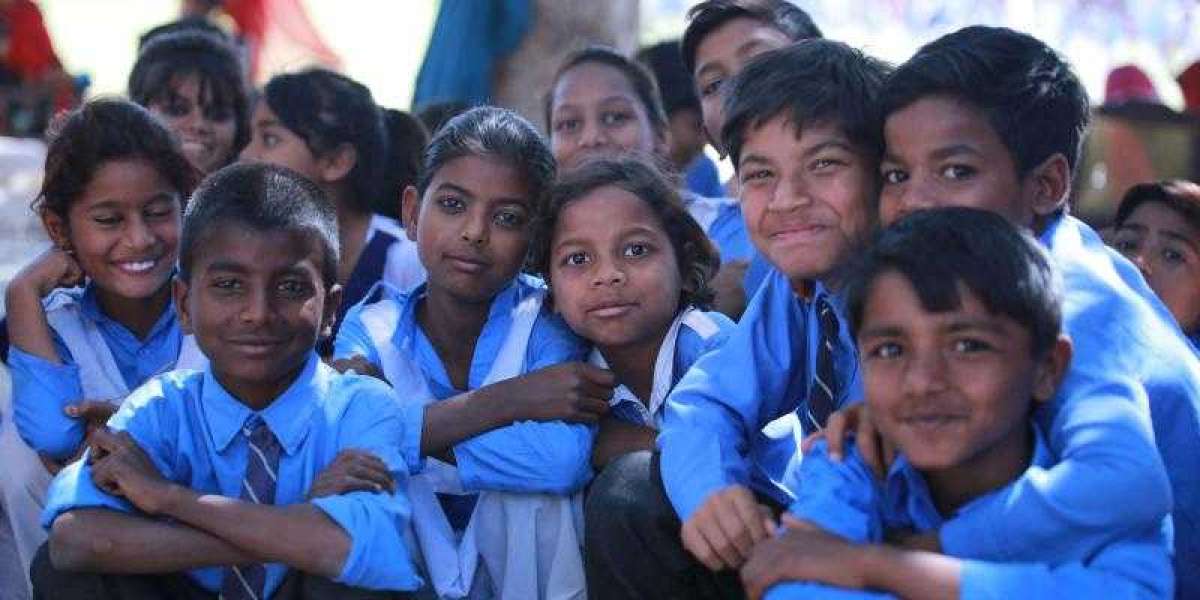Pakistan, a country with over 240 million people, has a significant portion of its population under the age of 18. According to UNICEF, nearly 40% of the country's population consists of children. However, millions of these children face challenges like poverty, child labor, abuse, neglect, malnutrition, and lack of access to quality education and healthcare. In this landscape, the role of non-governmental organizations (NGOs) becomes critically important. These organizations are the backbone of children support in Pakistan, offering protection, education, healthcare, and emotional care to the nation’s most vulnerable.
Among the many NGOs working tirelessly in Pakistan, SOS Children’s Villages Pakistan stands out as a beacon of hope. In this blog, we will explore how NGOs contribute to child welfare, the challenges they face, success stories, and how society can further support their mission.
What Are NGOs and How Do They Operate?
NGOs, or non-governmental organizations, are independent bodies working towards social good without government control. In Pakistan, child-focused NGOs often work in the following sectors:
- Education
- Health and Nutrition
- Child Protection
- Emergency Relief
- Psychosocial Support
- Orphan Care and Rehabilitation
Most NGOs collaborate with local communities, government agencies, and international partners to deliver services, advocate for policy change, and implement sustainable development projects.
Key Contributions of NGOs to Children Support in Pakistan
Let’s take a closer look at how NGOs make a difference in the lives of children in Pakistan.
- Providing Alternative Care for Orphans and Abandoned Children
Organizations like SOS Children’s Villages Pakistan provide a loving, family-like environment to children who have lost parental care. Through a model that includes dedicated SOS mothers, siblings, and a stable home environment, children grow up with emotional security and access to education and healthcare.
- Offering Free Education to Underprivileged Children
Many NGOs run free schools in underserved communities and slums. These schools not only provide academic education but also instill life skills, hygiene awareness, and civic responsibility. NGOs often act as a bridge between the community and the formal education system.
- Addressing Health and Malnutrition
Health-focused NGOs conduct medical camps, provide vaccinations, and supply nutritional supplements to malnourished children. Some even run mobile clinics and partner with hospitals to ensure that children in remote areas receive adequate healthcare.
- Fighting Child Labor and Abuse
Organizations work on awareness campaigns, policy advocacy, and rehabilitation programs for children involved in child labor or who are victims of abuse. Legal aid, counseling, and vocational training are essential components of this intervention.
- Emergency and Disaster Relief
During natural disasters like floods, earthquakes, or pandemics, NGOs are often first responders. They ensure children receive food, shelter, clean water, and trauma counseling in emergency situations.
Other Leading NGOs Working for Children in Pakistan
While SOS is among the most recognized, several other NGOs also play critical roles in children support in Pakistan:
- The Citizen’s Foundation (TCF)
Focused on education, TCF operates over 1,600 school units in underprivileged communities across Pakistan.
- Edhi Foundation
Renowned for its humanitarian work, Edhi Foundation runs orphanages, hospitals, and rescue services, including child welfare centers.
- Save the Children Pakistan
This global organization addresses issues like malnutrition, child protection, and emergency aid.
- Kashf Foundation
While primarily focused on microfinance, Kashf includes programs targeting women and children, including financial literacy for young girls.
- Akhuwat Foundation
Providing free education and healthcare services, Akhuwat’s model of compassion and community welfare touches thousands of children every year.
Challenges Faced by NGOs in Pakistan
Despite their critical role, NGOs encounter several obstacles:
- Funding Constraints
Many organizations rely heavily on donations and grants. In times of economic slowdown or political instability, funding becomes scarce.
- Regulatory Hurdles
NGOs often have to navigate complex legal frameworks, registration processes, and reporting requirements, which can delay operations.
- Security and Accessibility
Operating in remote or conflict-prone areas exposes NGO staff and resources to risks.
- Social and Cultural Barriers
In conservative or tribal areas, resistance to girls’ education or external intervention makes it difficult to implement child welfare programs.
- Lack of Coordination
Duplication of efforts and poor collaboration between NGOs can result in inefficient use of resources.
How the Public Can Support NGOs
Building a better future for Pakistan’s children is not solely the job of NGOs. Citizens and institutions can play a role too:
- Donate Regularly: Even small contributions help sustain programs.
- Volunteer Your Time or Skills: From tutoring to event planning, NGOs always need support.
- Sponsor a Child: Many NGOs offer child sponsorship programs that provide food, shelter, and education.
- Raise Awareness: Share stories, blogs, and videos to help promote the cause.
- Advocate for Policy Change: Engage with policymakers to prioritize child welfare laws and budgets.
The Way Forward: What Needs to Be Done?
While NGOs are doing commendable work in children support in Pakistan, the future demands a more integrated and collaborative approach.
- Government-NGO Partnerships
Stronger public-private collaborations can help scale up successful models and reach more children.
- Innovation in Service Delivery
Leveraging technology can help in tracking children’s progress, managing data, and improving education delivery through e-learning platforms.
- Community Engagement
Empowering local communities to take ownership of child welfare initiatives ensures sustainability.
- Strengthening Legal Frameworks
Reforming outdated child protection laws and ensuring stricter enforcement will create a safer environment for children.
Conclusion
Children support in Pakistan is not merely a charitable cause—it is a moral obligation and a national priority. NGOs have filled critical gaps left by systemic shortcomings in education, healthcare, and protection. They have rescued countless children from despair and given them the tools to lead dignified, fulfilling lives.
Among these champions, SOS Children’s Villages Pakistan continues to set the standard by offering holistic care in a family-like setting. However, the scale of the challenge requires a collective effort—from the government, civil society, private sector, and each one of us.



